
Cheraw is a town on the Pee Dee River in Chesterfield County, South Carolina, United States. The population was 5,040 at the 2020 census. The greater Cheraw area in the zip code 29520 has a population of 13,689 according to the 2019 ACS data. It has been nicknamed "The Prettiest Town in Dixie". More than half the population is African American.
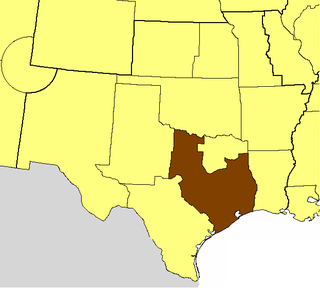
The Episcopal Diocese of Texas is one of the dioceses of the Episcopal Church in the United States of America. The diocese consists of all Episcopal congregations in the southeastern quartile of Texas, including the cities of Austin, Beaumont, Galveston, Houston, Waco and, as of July 2022, Fort Worth and other cities within the former diocese in North Texas.

Theodore Benedict Lyman, was the fourth Bishop of the Episcopal Diocese of North Carolina.

The AnglicanDiocese of Jerusalem is the Anglican jurisdiction for Israel, Palestine, Jordan, Syria and Lebanon. It is a part of the Episcopal Church in Jerusalem and the Middle East, and has diocesan offices at St. George's Cathedral, Jerusalem.

Samuel Provoost was an American clergyman. He was the first chaplain of the United States Senate and the first bishop of the Episcopal Diocese of New York, as well as the third Presiding Bishop of the Episcopal Church, USA. He was consecrated as bishop of New York in 1787 with Bishop William White. He was the first Episcopal Bishop of Dutch and Huguenot ancestry.

Patrick Neeson Lynch was an Irish-born prelate of the Roman Catholic Church. He served as bishop of the Diocese of Charleston in the Southeastern United States from 1857 until his death in 1882.

Stephen Elliott was the 37th bishop of the Protestant Episcopal Church in the United States of America. He was the first Bishop of Georgia and Provisional Bishop of Florida. He was also the first and only Presiding Bishop of the Protestant Episcopal Church in the Confederate States of America.

The Episcopal Diocese of Georgia, USA is one of 20 dioceses that comprise Province IV of the US Episcopal Church, and is a diocese within the worldwide Anglican Communion. The current bishop is Frank S. Logue, who succeeded Scott Anson Benhase on May 30, 2020, when he was consecrated 11th bishop of Georgia at a service held in Christ Church in Savannah, Georgia.

The Episcopal Diocese of the Rio Grande is the Episcopal Church's diocese in New Mexico and southwest Texas, the portion of the state west of the Pecos River, including the counties of El Paso, Reeves, Culberson, Jeff Davis, Brewster, Presidio, Terrell, Hudspeth and Pecos. The total area of the diocese is 153,394 square miles (397,290 km2). According to the 2006 parochial report, there are 57 active congregations within the diocese. The see is based in Albuquerque, New Mexico and the diocesan cathedral is the Cathedral Church of St. John.
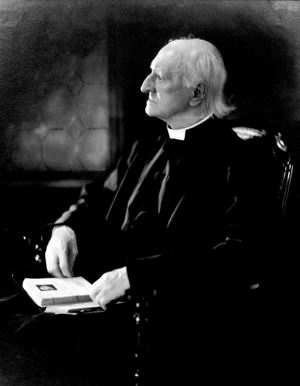
Alexander Charles Garrett was a bishop of The Episcopal Church in the United States.
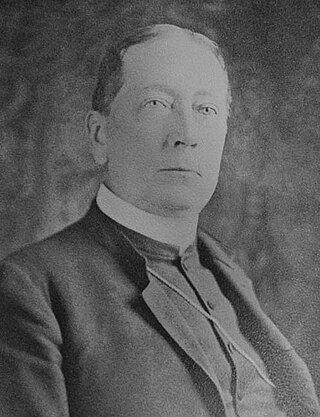
Cleland Kinloch Nelson was the Third Bishop of the U.S. state of Georgia and the first bishop of the Episcopal Diocese of Atlanta. Nelson was the 160th bishop of the Episcopal Church in the United States of America (ECUSA).
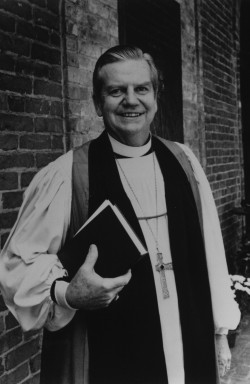
John Elbridge Hines was a bishop in the Episcopal Church in the United States. When he was elected the 22nd Presiding Bishop in 1965, at the age of 54, he was the youngest person to hold that office, which he held until 1974. Desmond Tutu, Archbishop of Cape Town, said Hines' movement to divest church-held assets in that nation played an important role in the demise of apartheid.
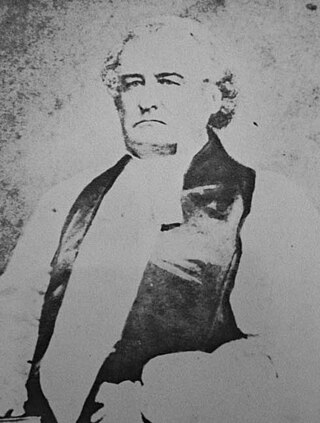
The Protestant Episcopal Church in the Confederate States of America was an Anglican Christian denomination which existed from 1861 to 1865. It was formed by Southern dioceses of the Episcopal Church in the United States during the American Civil War. When the Southern states seceded from the Union and established the Confederate States of America, it was not unusual for Protestant churches to split along national lines also. The Episcopalians were different as their separation was made only after the Confederacy was created and ended within six months of the South's surrender when Southern Episcopalians reunited with their counterparts in the North.

St. David's Church and Cemetery is a historic church and cemetery on Church Street in Cheraw, South Carolina.
Albert Micajah Shipp (1819–1887) was an American Methodist minister and university administrator.

Robert Woodward Barnwell Elliott was the first Missionary Bishop (1874–1887) of what was then the Missionary District of Western Texas in the Episcopal Church.

Alexander Burgess was the first bishop of the Episcopal Diocese of Quincy.
Albert Sidney Thomas was ninth bishop of the Episcopal Diocese of South Carolina, serving from 1928 to 1944. His father was John Peyre Thomas, Sr.
Charles Farmer Duvall was bishop of the Episcopal Diocese of the Central Gulf Coast from 1981 to 2001. He was consecrated on April 11, 1981.
Charles F. "Chip" Edgar III is an American Anglican bishop. He has been bishop of the Anglican Diocese of South Carolina (ADOSC) since 2022.
















